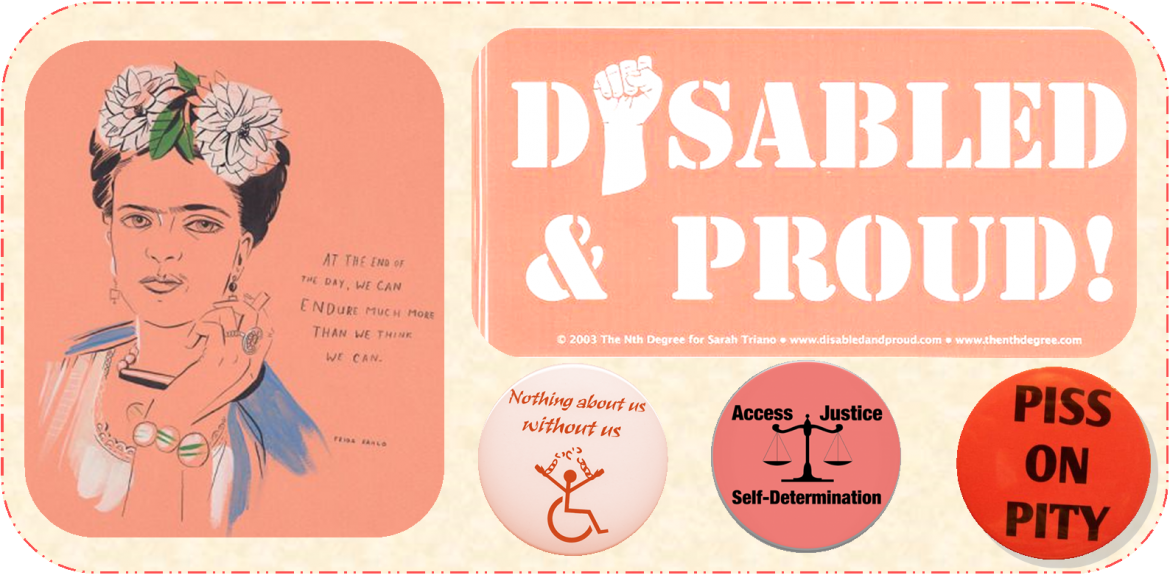“It’s not like it says SYSTEM on the Door”:
Capitalism, Aging, & Systematized Oppression
in Susan Nussbaum’s Good Kings Bad Kings
Throughout Good Kings Bad Kings, each point of view character plays into and against structures of capitalism, mostly expressed in the institution of Illinois Learning & Life Center. Many of the characters are trapped by "the System", as the character Joanne Madsen refers to it, on page 200. Each has their own varying level of consciousness of that system. However, Joanne herself has trouble defining what it is: so, how could the monolithic system be defined more concisely? How can we name the oppression that is created by the system, and begin to work against it by naming and knowing it?


Comments
Reflections
Grace in my Heart, Flowers in my Hair, a Mouthful of Shooting Stars:
A final personal reflection on Critical Disability Studies: Theory & Practice
And there will come a time, you'll see, with no more tears.
And love will not break your heart, but dismiss your fears.
Get over your hill and see what you find there,
With grace in your heart and flowers in your hair.
-Mumford & Sons, "After the Storm"
When I began this course, I had already become heavily embedded in disability as a field and as a culture. Since the Identity Matters 360, I’ve pursued a research fellowship in disability studies & anthropology, been to the Society for Disability Studies, gotten better treatment for my disability, and oh so many more things. I’ve grown so much as a person that it’s overwhelming for me to realize how much has happened in the year and a half since I last did a final reflection.
Self-Evaluation Reflection: Now is the Start
For me, this has been an incredibly difficult and incredibly valuable semester of work. This was by no means a “typical” semester, if such a thing can be said to exist at Bryn Mawr. I feel that I have progressed greatly as not just a scholar, but as a thinking person.